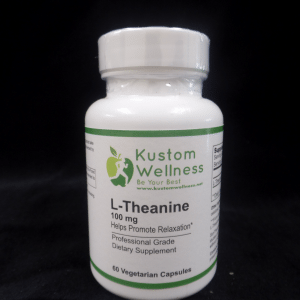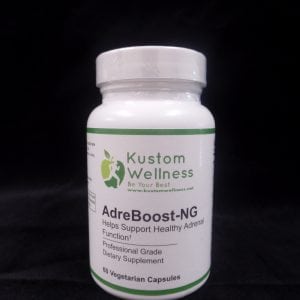Phosphatidyl Serine Complex / 500 mg
Phosphatidyl Serine may be useful to support nervous system / brain function
DESCRIPTION
Phosphatidyl Serine Complex softgels contain 500 mg of plant-derived (soy bean) phospholipids supplying 100 mg of phosphatidyl serine (PS). Until recently, PS was only available as a very expensive product derived from bovine sources, with microbiological safety problems. New technology has made it possible to concentrate this important brain nutrient from soy bean lecithin, a safe and well-recognized source of phosphatidyl serine.
FUNCTIONS
Phosphatidyl serine (PS), a phospholipid nutrient, is active in cell membranes and is the major acidic phospholipid component in the membranes of the brain. Membranes are the working surfaces of every cell, carrying out the essential functions of cellular communication and hormonal signal transduction. Nerve cells, in particular, depend on healthy membrane function for normal neurotransmitter metabolism and nerve signal transmission. PS occupies a crucial role in many of these membrane-associated nerve cell processes. The fundamental function of PS is to help maintain proper membrane fluidity, which has major implications on most membrane functions.
In the brain, PS helps maintain normal capacity for acetylcholine release and thus is important to the cholinergic neurotransmitter system. PS has similar functions in the dopamine, noradrenaline and serotonin dependent neurotransmitter systems. It is also needed for sodium and potassium transport via its influence on ATPase activity.
PS assists in maintaining adequate glucose utilization in the brain. Glucose is the preferred energy substrate for nerve cells which, unlike other cells, are unable to use fatty acids or proteins for energy production. Brain glucose utilization, an indicator of brain activity, often declines during aging.
Another related function of PS is its role in controlling the normal balance of stress hormones. PS is involved in the body’s response to counterbalance the excessive release of adrenocorticotrophic hormone (ACTH) and adrenaline after physical stress from exercise, while supporting normal growth hormone release at the same time.
Dietary PS is efficiently and rapidly absorbed in the intestine, taken up into the blood, and readily crosses the blood-brain barrier to reach the nerve cells of the brain.
Call for Pricing
Product Description
Phosphatidyl Serine may be useful to support nervous system / brain function
DESCRIPTION
Phosphatidyl Serine Complex softgels contain 500 mg of plant-derived (soy bean) phospholipids supplying 100 mg of phosphatidyl serine (PS). Until recently, PS was only available as a very expensive product derived from bovine sources, with microbiological safety problems. New technology has made it possible to concentrate this important brain nutrient from soy bean lecithin, a safe and well-recognized source of phosphatidyl serine.
FUNCTIONS
Phosphatidyl serine (PS), a phospholipid nutrient, is active in cell membranes and is the major acidic phospholipid component in the membranes of the brain. Membranes are the working surfaces of every cell, carrying out the essential functions of cellular communication and hormonal signal transduction. Nerve cells, in particular, depend on healthy membrane function for normal neurotransmitter metabolism and nerve signal transmission. PS occupies a crucial role in many of these membrane-associated nerve cell processes. The fundamental function of PS is to help maintain proper membrane fluidity, which has major implications on most membrane functions.
In the brain, PS helps maintain normal capacity for acetylcholine release and thus is important to the cholinergic neurotransmitter system. PS has similar functions in the dopamine, noradrenaline and serotonin dependent neurotransmitter systems. It is also needed for sodium and potassium transport via its influence on ATPase activity.
PS assists in maintaining adequate glucose utilization in the brain. Glucose is the preferred energy substrate for nerve cells which, unlike other cells, are unable to use fatty acids or proteins for energy production. Brain glucose utilization, an indicator of brain activity, often declines during aging.
Another related function of PS is its role in controlling the normal balance of stress hormones. PS is involved in the body’s response to counterbalance the excessive release of adrenocorticotrophic hormone (ACTH) and adrenaline after physical stress from exercise, while supporting normal growth hormone release at the same time.
Dietary PS is efficiently and rapidly absorbed in the intestine, taken up into the blood, and readily crosses the blood-brain barrier to reach the nerve cells of the brain.






Reviews
There are no reviews yet.